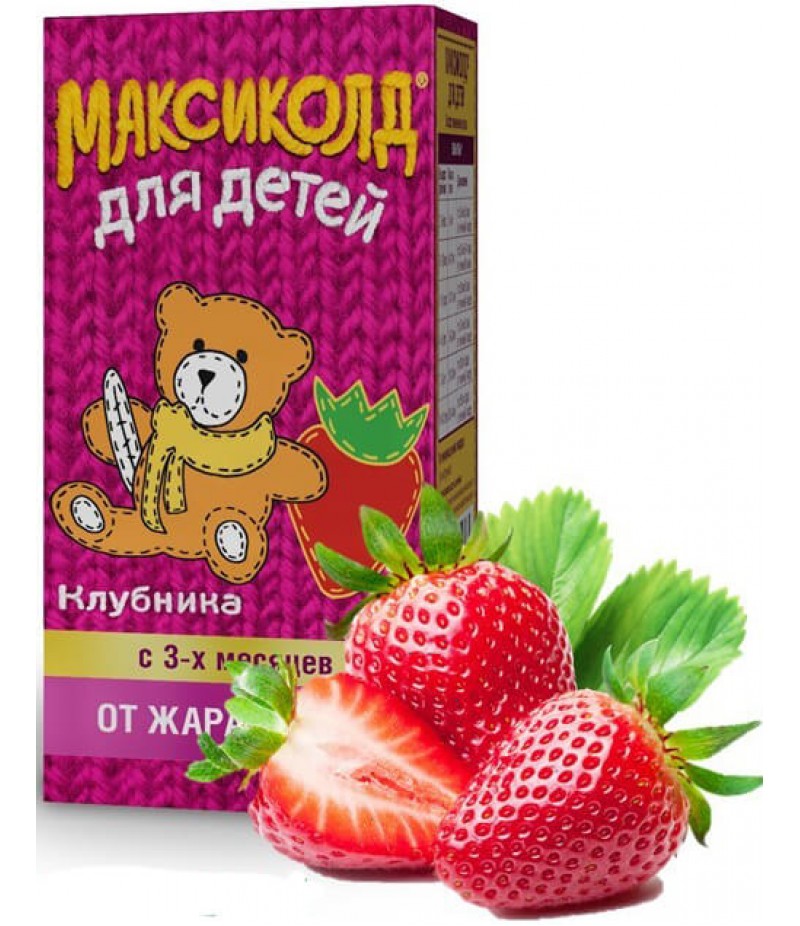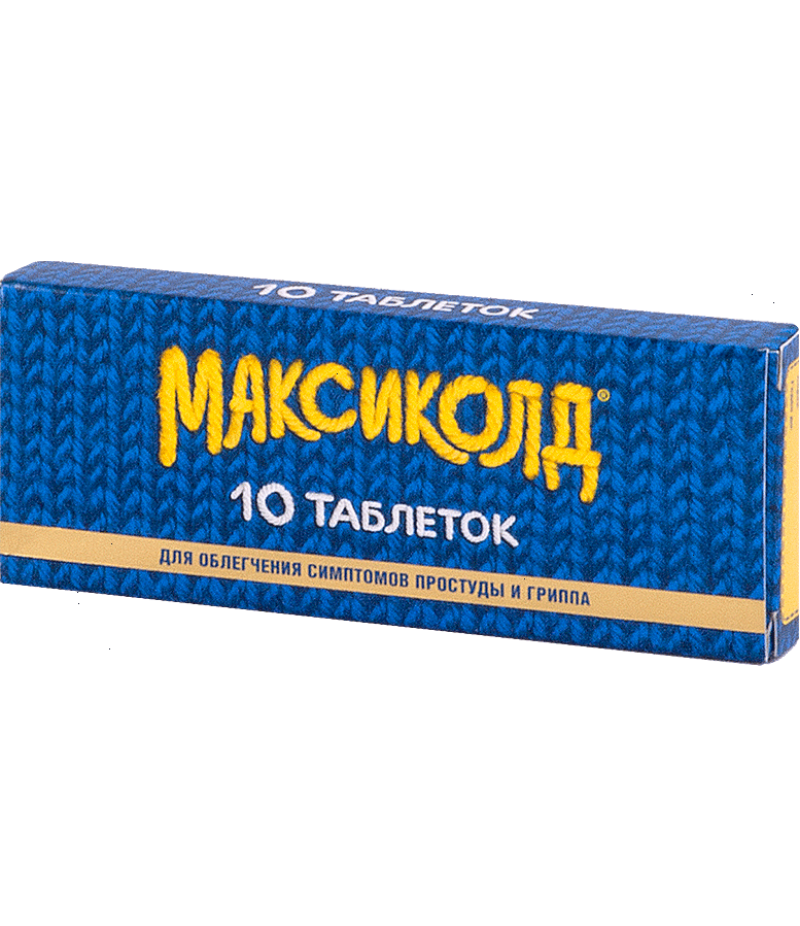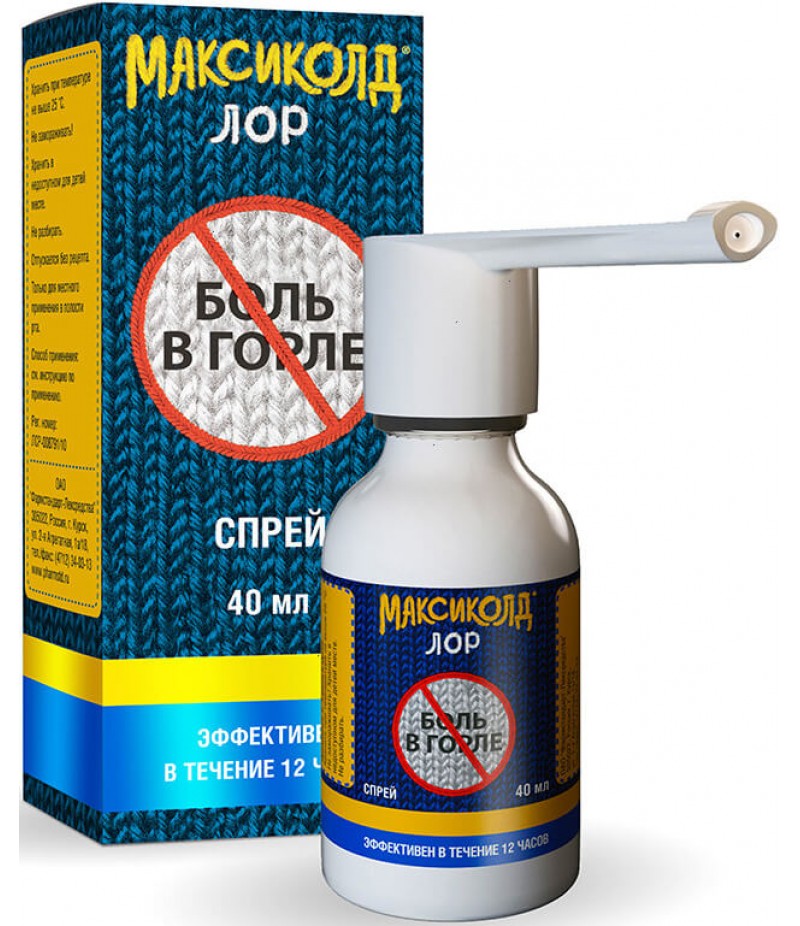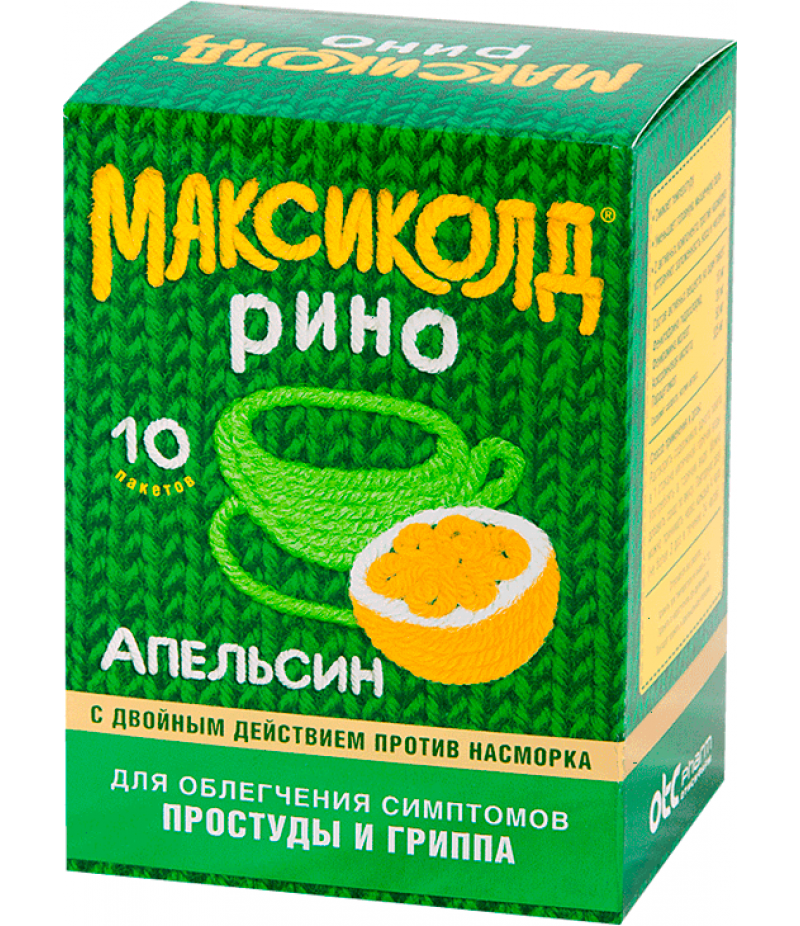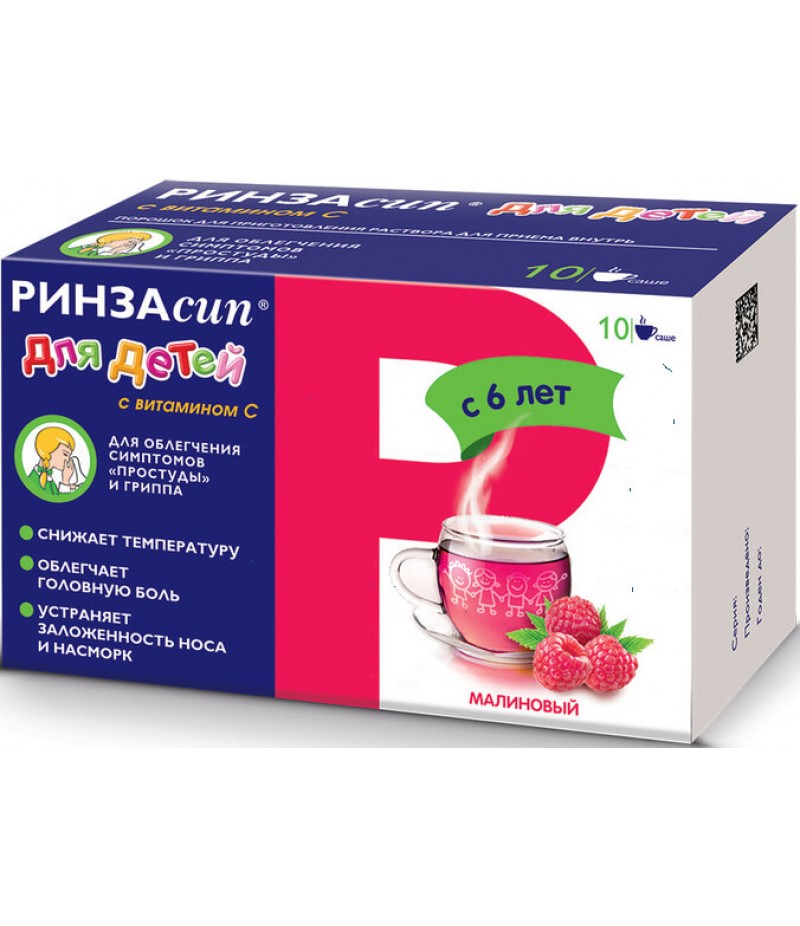Maxycold kids 100mg/5ml 200gr
- $10.35
- 3 or more $10.18
- Availability:In Stock
Maxycold kids instruction for useReed more and buy Maxycold kids here5 ml formulationActive substance: ibuprofen 100.0 mg.Excipients: polysorbate-80 (Tween 80) 0.5 mg, glycerol 600.0 mg, maltitol (maltitol liquid) 2111.25 mg *, so..
Maxycold kids instruction for use
Reed more and buy Maxycold kids here
5 ml formulation
Active substance: ibuprofen 100.0 mg.
Excipients: polysorbate-80 (Tween 80) 0.5 mg, glycerol 600.0 mg, maltitol (maltitol liquid) 2111.25 mg *, sodium saccharinate 10.0 mg, citric acid monohydrate 20.0 mg, sodium citrate dihydrate (sodium citrate 2-water) 25.45 mg, xanthan gum (xanthan gum) 35.0 mg **, sodium chloride 5.5 mg, domfen bromide 0.5 mg, strawberry flavor or orange flavoring 12.5 mg, water Purified to 5 ml.
Note
* The content of maltitol is indicated.
** Depending on the viscosity of xanthan gum, it is allowed to adjust its content in the preparation from 25.0 to 35.0 mg / 5 ml.
Description: suspension from light gray or light gray with a yellowish tinge of color to gray or gray with a yellowish tint of color with a characteristic fruity odor.
Pharmacotherapeutic group: non-steroidal anti-inflammatory drug (NSAID).
ATX code: M01AE01.
Pharmacological properties
Pharmacodynamics
The mechanism of action of ibuprofen, a derivative of propionic acid from the group of nonsteroidal anti-inflammatory drugs (NSAIDs), is due to inhibition of the synthesis of prostaglandins - mediators of pain, inflammation and hyperthermia. Non-selectively blocks cyclooxygenase 1 (COX-1) and cyclooxygenase 2 (COX-2), which inhibits the synthesis of prostaglandins. Has a quick directional action against pain (analgesic), antipyretic and anti-inflammatory action. Ibuprofen reversibly inhibits platelet aggregation.
Pharmacokinetics
Suction. It is well absorbed from the gastrointestinal tract (GIT). The time to reach the maximum concentration (TCmax) when administered on an empty stomach is 45 minutes, when taken after meals, 1,5-2,5 hours.
Distribution. The connection with plasma proteins is 90%. Slowly penetrates into the joint cavity, is retained in the synovial fluid, creating in it greater concentrations than in the plasma.
Metabolism. Ibuprofen is metabolized in the liver mainly by hydroxylation and carboxylation of the isobutyl group. After absorption, about 60% of the pharmacologically inactive R-form of ibuprofen is slowly transformed into an active S-form.
Excretion. It has a two-phase kinetics of excretion, T1 / 2 is 1-2 hours. It is excreted by the kidneys (in an unchanged form not more than 1%) and to a lesser extent - with bile.
Indications for use
Maxycold for CHILDREN is used from 3 months of life to 12 years as:
antipyretics for acute respiratory infections, influenza, childhood infections, post-vaccination reactions and other infectious-inflammatory diseases accompanied by fever.
anesthetics with pain syndrome of mild or moderate intensity, including: headache and dental pain, migraine, neuralgia, pain in the ears and throat, pain in stretching and other types of pain.
Maxycold kids is intended for symptomatic therapy, reducing pain and inflammation at the time of use, the progression of the disease is not affected.
Contraindications for Maxycold kids
According to the instruction, Maxycold for CHILDREN should not be used when:
hypersensitivity to ibuprofen, acetylsalicylic acid or other NSAIDs, as well as to other components of Maxycold kids;
complete or incomplete combination of bronchial asthma, recurrent nasal polyposis and paranasal sinuses and intolerance to acetylsalicylic acid or other non-steroidal anti-inflammatory drugs (including in the anamnesis);
ulcerative lesions of the gastrointestinal tract in the phase of exacerbation;
gastrointestinal bleeding;
bleeding or perforation of a gastrointestinal ulcer in an anamnesis provoked by the use of NSAIDs;
inflammatory bowel disease in the phase of exacerbation (Crohn's disease, ulcerative colitis);
active liver disease;
progressive kidney disease;
severe hepatic, renal (creatinine clearance (CK) less than 30 mL / min) insufficiency;
confirmed hyperkalemia;
severe heart failure, condition after aortocoronary bypass surgery;
disorders of blood coagulability (including hemophilia, lengthening bleeding time, propensity to bleed, hemorrhagic diathesis);
intracranial hemorrhage;
children under 3 months;
pregnancy (III trimester);
intolerance to fructose (since it contains in the composition of maltitol).
Carefully
Consult a doctor before using Maxycold for CHILDREN in the following situations:
simultaneous intake of other NSAIDs;
diseases of the gastrointestinal tract (peptic ulcer of the stomach or duodenum, ulcerative colitis, Crohn's disease, history of bleeding), hepatic, renal insufficiency (CC - 30-60 ml / min);
presence of Helicobacter pylori infection;
simultaneous administration of oral glucocorticosteroids (including prednisolone), anticoagulants (including warfarin), antiaggregants (including clopidogrel), selective serotonin reuptake inhibitors (including citalopram, fluoxetine, paroxetine , sertraline), antihypertensive drugs, diuretics, lithium preparations, methotrexate;
bronchial asthma, urticaria;
heart failure, arterial hypertension, cerebrovascular disease, dyslipidemia / hyperlipidemia, diabetes mellitus, peripheral arterial disease, fluid retention and edema;
severe physical illness;
systemic lupus erythematosus or other autoimmune diseases of connective tissue (increased risk of developing aseptic meningitis);
blood diseases of unclear etiology (leukopenia and anemia);
pregnancy (I-II trimester);
lactation period.
Use during pregnancy and during breastfeeding
The use of Maxycold kids is contraindicated in the third trimester of pregnancy. In the first and second trimesters of pregnancy, the drug is only possible if the intended benefit to the mother exceeds the potential risk to the fetus. The estimated benefit and potential risk should be performed by a physician.
It was found that ibuprofen is detected in breast milk in very low concentrations. The minimum detectable dose (0.0008% of the dose received) in a small degree of probability can have an impact on the child during breastfeeding. With prolonged use of Maxycold kids or when using high doses, it may be advisable to temporarily stop breastfeeding. To resolve the issue of the need to stop breastfeeding for the period of use of the drug should consult a doctor.
Dosing and Administration
Maxycold kids is taken orally. 5 ml of the preparation contain 100 mg of ibuprofen.
Shake the bottle thoroughly before use. To accurately measure the dose of the drug used the attached measuring spoon or dosing syringe.
In the case of a dispensing syringe, the following steps should be taken:
Firmly insert the dispensing syringe into the neck of the vial.
Shake the suspension well.
Flip the bottle upside down and gently pull the piston down, dialing the suspension into the dispensing syringe to the desired mark.
Return the vial to its original position and remove the dosing syringe by gently rotating it.
Place the dosing syringe in the baby's mouth and slowly press the piston, gently releasing the suspension.
After use, rinse the dosing syringe in warm water and dry it out of reach of the child.
Dosage for children depends on the age and body weight of the child. A single dose is 5-10 mg / kg of the child's body weight 3-4 times a day. The maximum daily dose should not exceed 30 mg per kg of body weight of the child per day. Do not exceed the specified dose!
Dosage with pain and fever (high body temperature of the baby)
Age of child : Body mass : Dosing
3-6 months : more than 5 kg : 2.5 ml 3 times for 24 hours, not more than 150 mg per day
6-12 months : 6-10 kg : 2.5 ml 3-4 times within 24 hours, not more than 200 mg per day
1-3 years : 10-15 kg : 5.0 ml 3 times for 24 hours, not more than 300 mg per day
4-6 years old : 15-20 kg : 7.5 ml 3 times for 24 hours, not more than 450 mg per day
7-9 years : 21-29 kg : 10 ml 3 times for 24 hours, not more than 600 mg per day
10-12 years old : 30-40 kg : 15 ml 3 times for 24 hours, not more than 900 mg per day
Dosage for postimmunization fever: 2.5 ml for children under 1 year. Children aged after 1 year, if necessary, an additional 2.5 ml after 6 hours. Do not apply more than 5 ml in 24 hours!
Maxycold kids should be taken no more often than every 6 hours!
Duration of treatment:
not more than 3 days as an antipyretic;
not more than 5 days as an anesthetic.
If you need more time, or if the drug is ineffective, you should consult your doctor.
Side effects of Maxycold kids
When using Maxycold kids, the following side effects may occur:
On the part of the gastrointestinal tract: nausea, vomiting, discomfort, or epigastric pain, diarrhea, flatulence, constipation, erosive and ulcerative lesions, bleeding, exacerbation of ulcerative colitis and Crohn's disease, ulcerative stomatitis, hepatic dysfunction, hepatitis, increased activity " hepatic transaminases. From the nervous system: headache, dizziness, agitation, insomnia, depression, aseptic meningitis (in patients with autoimmune diseases).
From the cardiovascular system: tachycardia, increased blood pressure, heart failure, myocardial infarction, stroke.
On the part of the organs of hematopoiesis: anemia, thrombocytopenia, agranulocytosis, leukopenia, pancytopenia.
From the urinary system: renal failure, cystitis, papillary necrosis, acute renal failure, interstitial nephritis, peripheral edema, increase in urea concentration in the blood plasma.
Allergic reactions: skin rash, pruritus, urticaria, exacerbation of asthma, angioedema, anaphylactoid reactions, anaphylactic shock, bronchoconstriction, fever, erythema multiforme (including Stevens - Johnson), toxic epidermal necrolysis (Lyell's syndrome).
From the sense organs: visual impairment, hearing loss, ringing in the ears.
From the respiratory system: shortness of breath.
If these or other side effects occur, discontinue use and consult a doctor.
Overdose
If you accidentally exceed the recommended dose, consult a doctor immediately. Overdose symptoms: abdominal pain, nausea, vomiting, headache, tinnitus, metabolic acidosis, coma, acute renal failure, decreased blood pressure, bradycardia, tachycardia.
Treatment: gastric lavage (only for an hour after taking), activated charcoal, alkaline drink, forced diuresis, symptomatic therapy.
Interaction Maxycold kids with other drugs
Caution should be exercised while using ibuprofen with the following medicines:
Acetylsalicylic acid or other NSAIDs may increase the risk of side effects. Care should be taken if acetylsalicylic acid is taken with ischemic heart disease or cerebrovascular disorders, because ibuprofen may reduce the effect of acetylsalicylic acid.
Antihypertensive drugs: ibuprofen weakens the effect of antihypertensive drugs (including blockers of slow calcium channels and ACE inhibitors).
Methotrexate: Methotrexate excretion is slowed. Patients with reduced renal function have a high risk of developing hepatotoxic reactions, even with low doses of methotrexate (<20 mg / week).
Some antacids may reduce the absorption of ibuprofen from the gastrointestinal tract, which may be important with prolonged administration of ibuprofen.
Corticosteroids and selective serotonin reuptake inhibitors (citalopram, fluoxetine, paroxetine, sertraline): increased risk of gastrointestinal bleeding.
Cyclosporine and gold preparations increase the effect of ibuprofen on the synthesis of prostaglandins in the kidneys, which is manifested by an increased risk of nephrotoxicity.
Mifepristone: NSAIDs should be started no earlier than 8-12 days after taking mifepristone, because NSAIDs may reduce the effectiveness of mifepristone.
Tacrolimus: the simultaneous use of ibuprofen and tacrolimus increases the risk of nephrotoxicity.
Zidovudine: simultaneous use of NSAIDs and zidovudine may lead to an increase in hematotoxicity. There is evidence of an increased risk of hemarthrosis and hematoma in HIV-positive patients with hemophilia who received co-treatment with zidovudine and ibuprofen.
Antibiotics of the quinolone series: in patients receiving co-treatment with NSAIDs and quinolone antibiotics, an increased risk of seizures is possible.
Joint use of ibuprofen with cefamandol, cefoperazone, cefotetan, valproic acid, plikamycin increases the frequency of hypoprothrombinemia.
Inductors of microsomal oxidation (phenytoin, ethanol, barbiturates, rifampicin, phenylbutazone, tricyclic antidepressants) increase the production of hydroxylated active metabolites, increasing the risk of developing severe hepatotoxic reactions.
Inhibitors of microsomal oxidation reduce the risk of hepatotoxic action of ibuprofen.
The use of ibuprofen together with thiazide diuretics reduces their effectiveness.
The drug increases the side effects of mineralocorticosteroids and glucocorticosteroids.
Lithium: ibuprofen slows the excretion of lithium.
Cardiac glycosides: NSAIDs can enhance the phenomena of heart failure, reduce the rate of glomerular filtration and cause an increase in the level of glycosides in the blood plasma.
Caffeine increases the analgesic effect.
Myelotoxic drugs increase the manifestation of hematotoxicity of Maxycold kids.
Drugs that block tubular secretion, reduce excretion and increase the plasma concentration of ibuprofen.
Ibuprofen reduces the effectiveness of uricosuric medicines, enhances the effect of antiplatelet agents, fibrinolytic agents, thrombolytic drugs and insulin.
Kolestyramin reduces the absorption of ibuprofen.
special instructions for Maxycold kids
The risk of unwanted effects can be minimized by using the lowest effective dose and short duration of therapy.
Before taking another drug from the NSAID group, you should consult your doctor.
Patients should always inform the doctor of any symptoms that occur during therapy.
When symptoms of ulcerative lesions or bleeding from the gastrointestinal tract appear, the drug should be discontinued, doctor's consultation and careful monitoring of the condition including esophagogastroduodenoscopy, a general blood test with determination of hemoglobin, hematocrit, fecal occult blood test.
Precautions should be taken while taking medications that increase the risk of complications from the gastrointestinal tract (including bleeding), such as glucocorticosteroids or anticoagulants (warfarin, acetylsalicylic acid). (See section "Interactions with other drugs.")
Maxycold for CHILDREN can be used for children with diabetes, because Maxycold kids does not contain sugar. The drug is not recommended for patients with intolerance to fructose, since it contains in the composition of maltitol. Does not contain dyes.
Before starting therapy, patients with bronchial asthma or allergic disease in the acute stage, as well as patients with a history of bronchial asthma / allergic disease, should consult with a doctor, since Maxycold kids can provoke the development of bronchospasm.
Before starting the use of the drug in patients with systemic lupus erythematosus or other autoimmune diseases of connective tissue, it is necessary to consult a doctor, since the use of Maxycold kids is associated with an increased risk of developing aseptic meningitis.
Long-term therapy with the drug should be performed under the supervision of a doctor, with a control of the picture of peripheral blood and the functional state of the liver and kidneys. Long-term use may increase the risk of acute coronary disease or stroke.
Before starting therapy for patients with a history of arterial hypertension and / or heart failure, care should be taken and consulted with a specialist, since such patients were noted for fluid retention, hypertension, and swelling associated with NSAID administration.
During the treatment with Maxycold kids in very rare cases, it is possible to damage the hematopoiesis. The first signs of hemopoiesis disorders can be fever, sore throat, superficial ulceration of the oral cavity, influenza-like symptoms, severe weakness, epistaxis, hemorrhagic skin rashes. If these symptoms occur, stop taking the medication and consult a doctor.
The drug may affect the results of the determination of 17-ketosteroids, so it should be canceled 48 hours before the test.
During the period of treatment, ethanol is not recommended.
Influence on ability to drive vehicles and mechanisms
Patients who report dizziness, headache, or visual impairment when taking ibuprofen are advised to refrain from managing motor vehicles and other potentially hazardous activities requiring increased concentration of attention, speed of psychomotor and motor reactions.
Form of issue
Suspension for oral administration (strawberry, orange), 100 mg / 5 ml.
100 g, 150 g or 200 g in bottles of dark (amber) glass, sealed with lids with a primary opening control or lids with a primary autopsy control and protection from opening by children. A syringe adapter is allowed under the lid. One bottle with instructions for use and a measuring spoon or a 10-ml dosing syringe is placed in a pack of cardboard.
Storage conditions
Store at a temperature not exceeding 25 ° C.
Keep out of the reach of children.
Shelf life - 2 years. At the end of the expiration date Maxycold kids should not be used.
Leave conditions
To buy Maxycold kids you don't need a prescription.

